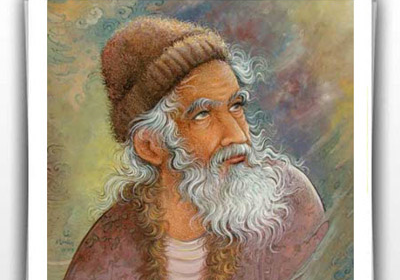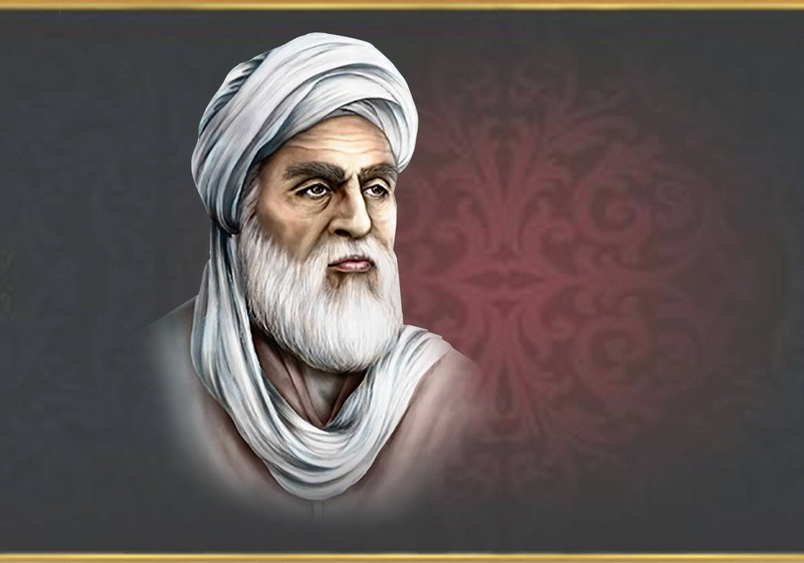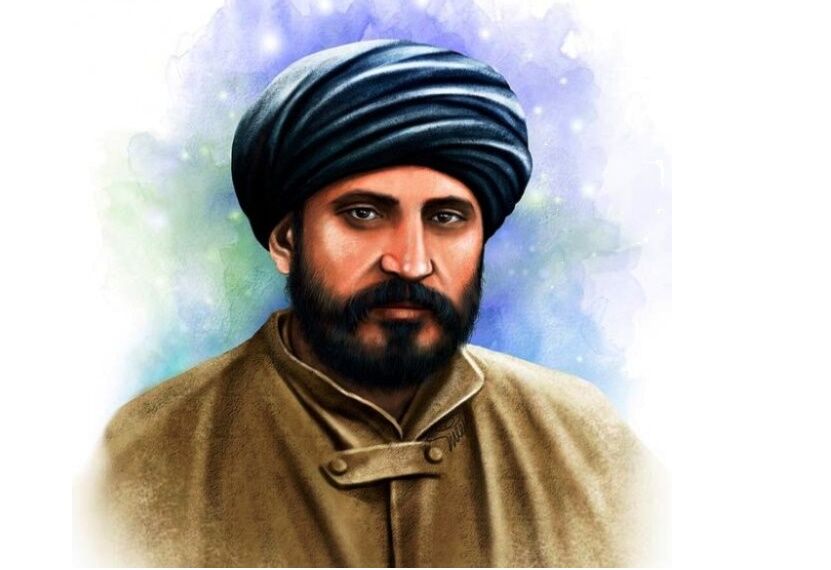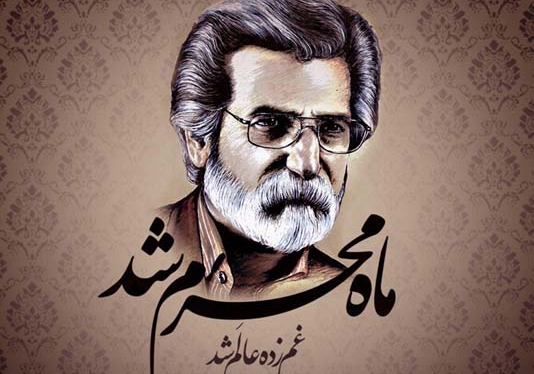
Baba Tahir’s Persian Quatrains: Vintage Poetry
Baba Tahir or Baba Taher Oryan Hamadani was an 11th-century dervish poet from Hamadan, Iran, whose skill in composing quatrains and the simplicity of his poems captivates both elites and common respectively. He wrote:
"شب تاریک و سنگستان و مو مست
قدح از دست مو افتاد و نشکست
نگهدارندهاش نیکو نگهداشت
وگرنه صد قدح نفتاده بشکست"
“It’s late in the evening, and I am drunk, wandering through stony paths – the cup fell from my hand, but it did not break – the protector kept it safe – or else, a hundred cups break before they fell down”
"ز دست دیده و دل هر دو فریاد
که هر چه دیده بیند دل کند یاد
بسازم خنجری نیشش ز پولاد
زنم بر دیده تا دل گردد آزاد"
“I am disappointed at my eyes and heart – Because the heart remembers what the eyes see – I want to make a dagger with iron – and stab my eyes with it so I would emancipate my heart”.
Baba Tahir’s do-beytis are simple, flow smoothly, and stay free of perplexity. These traits are definitely the reason his poems are popular among both common people and elites such that some of them are still frequently used by the people. The main themes of his poems include God, nature, and mankind.
"خوشا آنون که الله یارشان بی
به حمد و قل هو الله کارشان بی
خوشا آنون که دایم در نمازند
بهشت جاودان بازارشان بی"
“Lucky are those who receive Allah’s help – they consistently thank and praise Allah – Fortunate are those who are consistently praying – the heaven is their backyard”
"خداوندا به فریاد دلم رس
کس بی کس تویی مو مانده بی کس
همه گویند طاهر کس نداره
خدا یار منه چه حاجت کس"
“Oh, God! Come to my rescue – you are the only one who won’t leave the deprived – everyone says Tahir is lonely – God is by my side; who else do I need?” are two of his notable poems.
Abstaining from Worldly Desires
مکن کاری که بر پا سنگت آیو
جهان با این فراخی تنگت آیو
چو فردا نامه خوانان نامه خوانند
تو را از نامه خواندن ننگت آیو
“Don’t get into trouble in life – don’t allow such a vast world feel like a prison – be ready for the day of judgment – prevent embarrassment at the time of judgment”.
Iranians cannot get enough of Baba Tahir’s enlightening Luri (a Southwestern Persian dialect spoken by the Lurs of Iran) poems. In his poems, Baba Tahir advocates for compassion, kindness, support for one another, and abstaining from oppressive behavior. Furthermore, there are a number of Persian odes (ghazal and qasida) associated with him. Historians believe that Baba Tahir lived during the reign of Tughril of the Seljuk Empire. They also argue that the title “baba” was traditionally given to righteous old men and that people called Baba Tahir “Oryan” (meaning ‘bare’ in Persian) due to his explicit style of writing, and abstinence from worldly desires.
Baba Tahir did not seem to need sophisticated and technical words to express his thoughts through poetry. He emphasized simplicity, humility, and having a stoic lifestyle. “Kalamat e-Qesar” is another work of Baba Tahir worth mentioning, in which he ties mysticism with science, wisdom, and supplication. His Luri works include a book called “Saranjam” on mystic and Sufi beliefs, comprising two qit’as (meaning ‘piece’ or ‘fragment’), and a number of odes (ghazal).
Biography
Baba Tahir’s biography is unclear. However, historians believe that he lived a quiet life in a village called “Iraneh” in the city of Malayer in Hamedan, Iran. In one of his do-beytis, Baba Tahir revealed his own birthdate usingabjadletters (a writing system in which only consonants are represented, leaving vowel sounds to be inferred by the reader), indicating that he was born in 937 AD. Historians also argue that Baba Tahir was alive when Tughril of the Seljuk Empire entered Hamadan in 1049 AD.
Baba Tahir passed away at the age of 85 in Hamadan. His tomb is located in a place called “Bon Bazaar” near the northern entrance of the city of Hamadan, right in front of the shrine of Harith ibn Ali.
| Name | Baba Tahir’s Persian Quatrains: Vintage Poetry |
| Country | Iran |
| Nickname | Baba Tahir |
| Production Time | Born: 1000 AD, Hamedan Died: 1032 (age 32 years), Hamedan |
| Works | “Kalamat e-Qesar” “Saranjam” do-beytis |
| Yard period | the past |
| Type | Literary |


_28.jpg)


_28.jpg)
Choose blindless
Red blindless Green blindless Blue blindless Red hard to see Green hard to see Blue hard to see Monochrome Special MonochromeFont size change:
Change word spacing:
Change line height:
Change mouse type:












(b)_crop_8.jpg)

